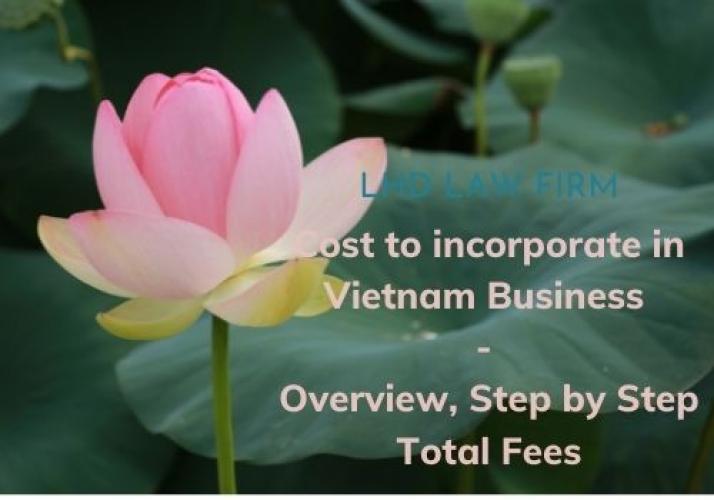Labor Law In Viet Nam
- 01/01/1970

Vietnamese labor law regulates the rights and obligations of the employer and the employees and sets forth the principles and standards for the management and usage of the labor. Labor relationship is considered to be of complex nature. Resolution of labor relationship is sensible not only to the employer, employees, but also the society as a whole.
1.Recruitment:
An employer has the right to recruit employees directly or through an employment agency. Before the recruitment, an employer must announce its recruitment demand on public means of information and post up a notice at the head office pursuant to laws and regulations.
2.Labor contract
Labor Contract is an agreement between an employee and employer on paid work, labor conditions, rights and obligations of each party in the labor relationship. A written labor contract is required for each employment. For work that is temporary and whose term is of less than three (03) months or for domestic work, parties can verbally transact.
There are three kinds of labor contract: (i) an indefinite term labor contract; (ii) a definite term labor contract with a term of 12 (twelve (12) months to 36 (thirty-six (36) months; or (iii) a labor contract for a specific or seasonal job with a duration of less than 12 (twelve (12) months.
A labor contract must state certain contents and can be amended, supplemented or terminated in accordance with applicable laws and regulations. Illegally terminating party is responsible for compensation to the other.
A standard form of employment contract printed by the Ministry of Labor, Invalids and Social Affairs can be used by the parties, or the parties may prepare their own provided that the basic terms and conditions as specified in the standard form be included.
3.Work permit
A foreigner working in Vietnam must have a work permit unless he/she works in Vietnam for a period of less than 3 (three (03) months or other cases as regulated by the laws and regulations. A foreigner who is an owner or a member of a limited liability company or a member of the Board of Management of a joint stock company or enters Vietnam for offering services is not required of a work permit.
The Department of the Labor, Invalids and Social Affairs of the province where the employee regularly works or where the employer has its head office is vested with the authority to issue a work permit.
Each work permit has a maximum term of 36 (thirty six (36) months and may be renewed for a respective term. A work permit is given to a particular employee and may not be transferred in any circumstances.
4. Collective Labor Agreement
A collective labor agreement is a written agreement between the collective employees and the employer in respect of working conditions and utilization of labor, the rights and obligations of both parties in the labor relationship. The agreement shall be negotiated and signed by the representative of the labor collective and the employer.
A collective labor agreement must state main contents as required by applicable laws and must be registered with the competent labor authority. The term of a collective labor agreement is one (01) to three (03) years. When an enterprise signs a collective agreement for the first time, the term of the collective agreement may be of less than one (01) year. A collective labor agreement becomes effective as specified both parties in the agreement. In the absence of such agreement on the effective date, the collective labor agreement becomes effective upon execution date. The parties are entitled to amend, supplement the collective agreement, which has been implemented for a fixed period as regulated by applicable laws.
5. Internal labor rule
An internal labor rule is a company handbook of a company including regulations on timing, technology, the management of manufacture and business.
Prior to the announcement of its internal labor rule, an employer must consult with the executive committee of the trade union of the company. An internal labor rule must states major contents as required by applicable laws and must be registered at the competent labor authority.
6.Trade union
A trade union is an organization acting as the legal representative for the legitimate rights and benefits of the employees in a company. When a trade union organization is lawfully established, the employer must recognize such organization and must facilitate trade union activities.
In some cases, the employer must inform or get consent from the trade union of the enterprise before issuing decisions relating to the employees. Should the trade union disagree with decisions of the employer, the trade union is entitled to submit a petition to the competent labor authority.
7.Labor disciplines
Labor disciplines are regulations as to time, technology, the management of manufacture and business as specified in the internal labor rule.
An Employee who violates the internal labor rule will be subject to one of the following disciplines: (1) Warning; (2) extension of the period for salary increase, but not more than six (06) months, transfer to another position with a lower salary for a maximum period of six (06) months, or demoting; (3) dismissal. Currently, in practice, a court of Vietnam has viewed that the discipline type 1 and type 2 are applicable when acts of violation, as conducted by the violating employee, are specified in the internal labor rule.
An act of violation is subject to only one of the above-mentioned disciplines. A representative of the executive committee of the trade union of the company must participate in the resolution of labor disciplines unless the intended discipline is warning.
Dismissal only applies in cases where the employee seriously breaches the internal labor rule, including: i) committing an act of theft, embezzlement, disclosure of business or technology secrets, or other conduct which is seriously detrimental to the assets or well-being of the enterprise; ii) re-committing an offence subject to the discipline type 2 during the discipline period; iii) taking an aggregate of five (05) days off in one (01) month or an aggregate of twenty (20) days off in one (01) year without legitimate reasons.
After dismissing an employee, the employer must notify the office in charge of the provincial competent labor authority.
The resolution of labor violation must be in compliance with the labor law, the collective agreement (if any) and the internal labor rule.
8. Salary
Salary of an employee can be agreed by the two parties in the labor contract and must not be lower than the minimum wage as stipulated by the Government from time to time. In addition to the general minimum wage (that is used for calculating salary level in salary scale, payroll, allowance, deducted amount for regimes that the employee is entitled to enjoy based on the general minimum salary), the minimum salary is also different amongst regions and types of companies (with or without foreign invested capital).
Currently, in 2011, the general minimum salary is VND830,000 per month; the minimum salary applicable to companies without foreign invested capital ranges from VND830,000 to VND1,350,000. The minimum salary applicable to companies with foreign invested capital ranges from VND1,100,000 to VND1,550,000. Minimum salary will continue to be increased as per the roadmap issued by the Government.
An employer shall be entitled to determine a suitable method of payment of salary as to time, on the basis of a product produced, or a completed piece of work, provided that before implementation, the employee is notified of and agree on such method.
A company is required to prepare a salary scale, payroll and to establish salary fund for implementation of salary related regimes for the employees such as compulsory social insurance, health insurance and unemployment insurance regimes.
9. Certain financial obligations of employer
a. Compulsory Social Insurance, Medical Insurance and Unemployment Insurance:
An employer is responsible to contribute to compulsory social insurance, medical insurance and unemployment insurance for the employees at a certain rate of the salary of the employee that is used for the calculation of social insurance premium of the employee (the “Social Insurance Salary”). This Social Insurance Salary includes the personal income tax of the employee and allowances which the employee is enjoyed, but excludes allowance as to exposure to harm sources and allowance as to responsibility. In case the salary of the employee is twenty times greater than the then general minimum salary, the Social Insurance Salary twenty times of the then general minimum salary.
An employer is required to pay social insurance and health insurance for those employees whose labor contract term is of more than three (03) months. The employer must contribute 15% of the Social Insurance Salary of the employee and gradually more as specified in the roadmap up to 18% of Social Insurance Salary as of 2010; with respect to health insurance, the employee will contribute 4% of the Social Insurance Salary.
As for domestic work, the employer must include the social insurance and health insurance in the salary of the employee.
As to the unemployment insurance, an employer who recruits 10 (ten) employees or more must contribute to the unemployment insurance for the employees whose labor contract term is of 12 (twelve (12) months or more. The employer must contribute 1% of the Social Insurance Wage for unemployment insurance.
In addition to that, the employer must deduct from the salary of the employees respective amounts for contribution of social insurance, health insurance and unemployment insurance of which the employees are required. In particular, the deducted amount is 5% of the Social Insurance Wage for social insurance, to be gradually increased up to 8% as of 2010, and 2% for health insurance and 1% for unemployment insurance.
b. Severance Allowance and Allowance for Loss of Work:
A severance allowance: except for cases of dismissal permitted under applicable laws, where a labor contract of an employee who has been regularly employed for twelve (12) months or more is terminated, the employer must pay such employee a severance allowance that is equal to the aggregate amount of half of one (01) month salary for each year of employment plus allowances (if any).
An allowance for loss of work: where as a result of organizational restructuring or technological changes, an employee who has been employed for a period of twelve (12) months or more losses his/her job, the employer must pay an allowance for loss of work equivalent to the aggregate amount of one (01) month salary for each year of employment, but at least two (02) months salary. In this regard, the employer is not required to pay the employee any severance allowance.
From 1 January 2009, employee who enjoys unemployment insurance will not be entitled to severance allowance and allowance of loss of work.
10. Labor dispute
A labor dispute is controversy between an employee and an employer regarding rights and benefits arising during the labor relationship (an individual labor dispute) or labor collective with an employer (a collective labor dispute).
As regulated by the Labor Code of Vietnam, Vietnam court system plays a unique role of hearing labor disputes arising within Vietnam territory if either a Vietnamese or a Vietnamese company is a party to the dispute, regardless of whether a foreign jurisdiction is agreed to by the parties.
11. Strike
A strike is a temporary and voluntary cessation of work organized by a labor collective for resolution of a collective labor dispute provided that conditions and procedures for such a strike must be followed. Any strike that does not comply with applicable laws on conditions, order and procedures is considered illegal. In the event that a strike is illegal and causes damages to an employer, the organizations and individuals involved in such a strike must compensate the employer for the damages caused as stipulated by the laws.
The provincial People’s Court where a strike has occurred shall have competence to consider the legality of the strike. The appellate division of the Supreme People’s Court shall have competence to resolve complaints with respect to the decision on legality of a strike issued by the provincial People’s Court.
Send comment
Others Post
+68889+
Happy Client's
+16889+
Projects Done
+39+
Employees
3+
Office Locations










0 comment